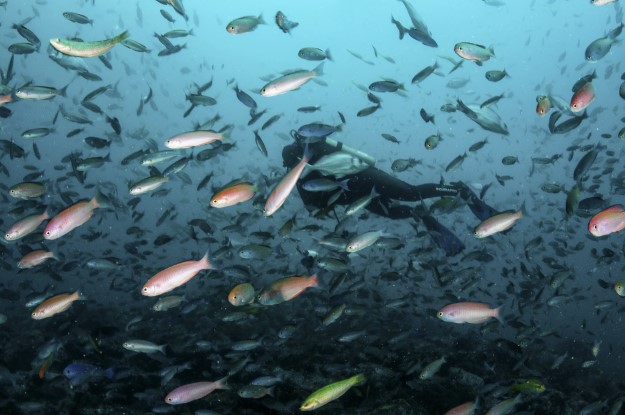This article is adapted from AQ’s latest issue on the politics of water in Latin America
Water is making headlines. Both salt water and fresh water. And for good reason. The oceans cover three-quarters of Earth’s surface and operate as dynamic regulators of global weather patterns. They are a principal destination for carbon sequestered from the atmosphere, and for billions they supply a significant source of protein. I’ve learned these things as a board member of Oceana, which now has regional offices in Brazil, Peru, Chile, Belize and Mexico.
Just recently, the Intergovernmental Panel on Climate Change issued a sobering report on the impact of climate change (especially global warming) on the melting of large ice caps and the potential for catastrophic sea level rise. Low-lying coastal communities around the globe — including along the littorals of the Americas — will be threatened by inundation, massive displacements of coastal people, and huge damage to vital infrastructure.
On the fresh water side, there are many parts of the world which — principally because of climate change — have been suffering from severe droughts and are struggling to come up with alternative supplies. While much of South America is blessed with the spine of the Andes, which generates snow and rainfall in profusion, there are other parts of the continent that are not so lucky, the Atacama Desert being the most dramatic example.
Producers of bottled water have been eager to come to the rescue of parched communities around the world, and this product now represents the fastest-growing sector among all bottled drinks. About 240 billion plastic beverage bottles are used each year in the U.S. alone, and these “perpetual inhabitants” of our planet find themselves in our overrun landfills, rivers and oceans. The result is disastrous for the fish, birds, turtles, and marine mammals who consume or become entangled in plastic. The threat extends to human health with plastics making their way into our food, water, and air.
But there are some clear actions we can take to reduce these threats: 1) Reduce our carbon emissions. 2) Sequester carbon by planting more trees and cover crops. 3) Reduce plastic production and its over-use, especially single-use plastic. 4) Support scientists, technologists and entrepreneurs who are working hard to develop alternative energy solutions, cheaper and more energy-efficient fresh water conversion solutions, and substitutes for plastic. Human ingenuity is up to the task!








